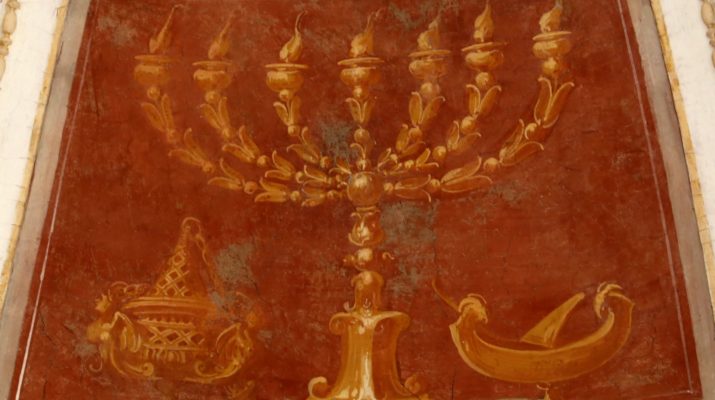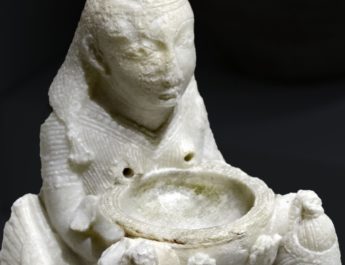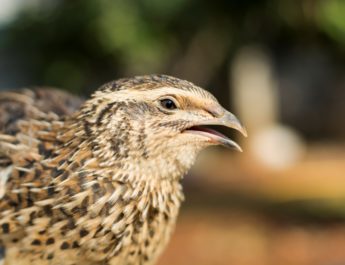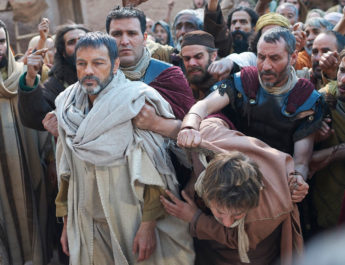Exodus 37
BibleHub
1 BezalelI madeII the arkIII of acaciaIV wood;V
Notes on verse 1a
I “Bezalel” = Betsalel. 9x in OT. Probably from tsel (shade in a literal or figurative sense; shadow, shade, protection, shelter, or defense); {from tsalal (to be or become dark, shade; this is the shade as during twilight or shadow as associated with something opaque)} + el (God, a god) OR from batsal (onion) + el (God, a god). This is Bezalel or Bezaleleel or Betsalel. It means “in the shadow of God” or “in the protection of God” or “onion of God.” See https://www.abarim-publications.com/Meaning/Bezalel.html
II “made” = asah. This is to make, do, act, appoint, become in many senses.
III “ark” = aron. Perhaps from arah (to gather or pluck). This is a chest, box, or coffin. It is used for the Ark of the Covenant.
IV “acacia” = shittah. This is acacia or shittim.
V “wood” = ets. Perhaps from atsah (to shut, fasten, firm up, to close one’s eyes). This is tree or other things related to trees like wood, sticks, or stalks. It can also refer to wood products like a plank or staff or gallows. Additionally, this can refer to a carpenter.
it was two and a halfVI cubitsVII long,VIII a cubit and a half wide,IX and a cubit and a half high.X
Notes on verse 1b
VI “half” = chatsi. From chatsah (to halve, divide, reach, participate). This is half, middle, midnight, midst.
VII “cubits” = ammah. From the same as em (mother). This is a cubit, post, threshold, pivot. It is mother as the basic measure (the length of the forearm). It is also mother as the which bonds an entryway i.e. the base of the door.
VIII “long” = orek. From arak (to be long in a literal or figurative sense, to continue, defer, draw out). This is length, long, or forever.
IX “wide” = rachob. From rachab (to grow wide or enlarge in a literal or figurative sense; extend, relieve, rejoice, or speak boldly). This is width, depth, thickness, or expanse. It can be used in a figurative sense.
X “high” = qomah. From qum (to arise, stand, accomplish, establish, abide; rising against, getting up after being sick or asleep, arising from one state to another, becoming powerful, or rising for action; standing in a figurative sense). This is tall, high, length, or height.
2 He overlaidXI it with pureXII goldXIII insideXIV and outsideXV and made a moldingXVI of gold aroundXVII it.
Notes on verse 2
XI “overlaid” = tsaphah. This is to spread, to cover with sheets (as with metal).
XII “pure” = tahor. From taher (bright, which implies being pure or clean; to purge, cleanse, or purify; clean in a ritual sense or a moral one (i.e. moral or holy)). This is clean or pure in a literal, ritual, or ethical sense.
XIII “gold” = zahab. Root may mean to shimmer. This is gold or something that has the color of gold like oil. It can also refer to a clear sky – to good weather.
XIV “inside” = bayit. Probably from banah (to build, make, set up, obtain children; to build literally or figuratively). This is house, court, family, palace, temple.
XV “outside” = chuts. Root may mean to sever. So, this is something that is separated by a wall – the outside, the street, a field, highway, or abroad.
XVI “molding” = zer. 10x in OT– all in Exodus. From zur (to push down, squeeze, crush, close) OR from zarar (to diffuse, sneeze). This is a border or molding. It can also refer to a crown.
XVII “around” = sabib. From sabab (turning around, going around; to surround, cast, walk, fetch; to revolve or border in a literal or figurative sense). This is a circuit or a circle. It could refer to an environment, one’s neighbors, or a circular path round about.
3 He castXVIII for it fourXIX ringsXX of gold for its four feet,XXI
Notes on verse 3a
XVIII “cast” = yatsaq. This is to pour out, flow, wash away, or overflow. It can imply melting as one does to cast metal. By extension, it can refer to something being steadfast, stiffened, firmly in place.
XIX “four” = arba. From raba (to make square or be four-sided). This is four.
XX “rings” = tabbaath. From taba (to sink, drown, settle, or fasten). This is a signet ring or seal. It can also be used more broadly for rings in general.
XXI “feet” = paam. From paam (to move, trouble; to tap in a regular rhythm; to agitate). This is a beat, stroke, footstep, or occurrence.
twoXXII rings on its oneXXIII sideXXIV and two rings on its otherXXV side.
Notes on verse 3b
XXII “two” = shenayim. From sheni (double, again, another, second); from shanah (to fold, repeat, double, alter, or disguise). This is two, both, second, couple.
XXIII “one” = echad. Perhaps from achad (to unify, continue on a path; figuratively, to gather one’s thoughts). This is the number one, first, united. It can also be alone, altogether, a certain, a few.
XXIV “side” = tsela. Perhaps from tsala (to limp, be lame). This is rib, side, leaf, plank, side of a person or object; quarter of the sky.
XXV “other” = sheni. Related to “two” in v3. See note XXII above.
4 He made polesXXVI of acacia wood and overlaid them with gold 5 and putXXVII the poles into the rings on the sides of the ark, to carryXXVIII the ark. 6 He made a coverXXIX of pure gold; two cubits and a half was its length and a cubit and a half its width.
Notes on verses 4-6
XXVI “poles” = bad. From badad (to divide or be separated; alone, solitary, lonely, isolated, straggler). This is apart, alone, separation, body part, tree branch, except. It can also be a city’s chief.
XXVII “put” = bo. This is to enter, come in, advance, fulfill, bring offerings, enter to worship, attack. It can also have a sexual connotation.
XXVIII “carry” = nasa. This is to lift in a broad sense, literally and figuratively. So it could be to carry, take, or arise. It could also be bring forth, advance, accept.
XXIX “cover” = kapporeth. From the same as kopher (ransom, bribe, price of a life; something that covers something else; a village, bitumen as a coating, a henna plant that dyes, a ransom price); from kaphar (to appease, cover, pacify, cancel, cleanse, pardon). This is the lid on top of the ark – the mercy seat.
7 He made two cherubimXXX of hammeredXXXI gold; at the two endsXXXII of the cover he made them, 8 one cherub at one end and one cherub at the other end; of one piece with the cover he made the cherubim at its two ends.XXXIII
Notes on verses 7-8
XXX “cherubim” = kerub. Perhaps related to Akkadian (“to bless” or “one who blesses”). This is a cherub – perhaps a class of angels. See https://en.wiktionary.org/wiki/%D7%9B%D7%A8%D7%95%D7%91#Hebrew
XXXI “hammered” = miqshah. 10x in OT. From the same as miqsheh (something round, a hairdo, curly hair); from qashah (to be fierce, cruel, dense, tough, severe). This is something that is made that is rounded, perhaps hammered from a single piece.
XXXII “ends” = qatsah. From qatseh (end, brink, border, edge, frontier; that which is within set boundaries); from qatsah (to cut off, cut short; figuratively, to destroy). This is an end, corner, outer limit, coast, corner, fringe.
XXXIII “ends” = qetsath. Related to “ends” in v7. 5x in OT. Aramaic corresponding to Hebrew qetsath (end, part, portion, after); from qatsah (see note XXXII above). This is end, edge, partly, over.
9 XXXIVThe cherubim spread outXXXV their wingsXXXVI above,XXXVII overshadowingXXXVIII the cover with their wings.
Notes on verse 9a
XXXIV {untranslated} = hayah. This is to be or become, to happen.
XXXV “spread out” = paras. This is to spread or stretch out, extend, break up, chop to pieces, disperse, display.
XXXVI “wings” = kanaph. This is wing, edge, corner, extremity. It can also be a flap or fold of a garment or the pinnacle of a building.
XXXVII “above” = maal. From alah (to go up, ascend, be high, be a priority; to arise in a literal or figurative sense). This is the upper part, forward, high above, upwards, greater, heaven, or exceedingly.
XXXVIII “overshadowing” = sakak. This is to cover or overshadow. It could also be to hedge or fence it. Figuratively, this could be to defend, protect, or join together.
They facedXXXIX one another;XL the faces of the cherubim wereXLI turned toward the cover.
Notes on verse 9b
XXXIX “faced” = paneh. From panah (to turn, face, appear). This is face in a literal or figurative sense. It could be face, presence, anger, respect. It can also be used of God to indicate divine favor or presence.
XL “one another” = ish + el + ach. Literally, “a man to his brother.” Ish is perhaps from enosh (human, humankind, mortal); from anash (to be weak, sick, or frail). This is man, husband, another, or humankind. Ach is brother, kindred, another, other, like. It is literally brother, but it can also be someone who is similar, resembling, or related to.
XLI “were” = hayah. Same as {untranslated} in v9. See note XXXIV above.
10 He also made the tableXLII of acacia wood, two cubits long, one cubit wide, and a cubit and a half high. 11 He overlaid it with pure gold and made a molding of gold around it. 12 He also made around it a rimXLIII a handbreadth wide,XLIV and he made a molding of gold around the rim. 13 He cast for it four rings of gold and fastenedXLV the rings to the four cornersXLVI at its four legs.XLVII 14 The rings that held the poles used for carrying the table were close toXLVIII the rim. 15 He made the poles of acacia wood to carry the table and overlaid them with gold.
Notes on verses 10-15
XLII “table” = shulchan. Perhaps from shalach (to send, send for, forsake). This is a table or meal.
XLIII “rim” = misgereth. 17x in OT. From sagar (to shut up, imprison, lock, hand over, or figuratively surrender). This is something that encloses – a margin, panel, rim, hole, stronghold.
XLIV “handbreadth wide” = tophach. 5x in OT. From taphach (to flatten, spread, span, swaddle, nurse a baby). This is a span or handbreadth.
XLV “fastened” = natan. This is to give, put, set, offer. It is to give literally or figuratively.
XLVI “corners” = peah. From paah (to puff, scatter, cut in pieces) OR poh (here, side). This is a side, edge, region, temple, corner.
XLVII “legs” = regel. This is foot, endurance, or journey. It is a foot as the means of walking and so it implies a step or a greater journey. It can be used euphemistically for private parts.
XLVIII “close to” = ummah. From im (with, against, before, beside); from amam (to darken, hide, associate; creating shadows by huddling together). This is close by, alike, parallel, corresponding.
16 And he made the vesselsXLIX of pure gold that were to be on the table, its platesL and dishesLI for incense and its bowlsLII and flagonsLIII with which to pourLIV drink offerings.
Notes on verse 16
XLIX “vessels” = keli. From kalah (to end, be finished, complete, prepare, consume, spent, or completely destroyed). This is something that was prepared – any implement, utensil, article, vessel, weapon, or instrument. Also includes jewels, weapons, bags, carriages, and furniture.
L “plates” = qearah. 17x in OT– all in Exodus and Numbers. Perhaps from qara (to tear or cut out in a literal or figurative sense; to revile or to apply eye make up – as though they are made to look larger). This is a dish, bowl, or charger.
LI “dishes” = kaph. From kaphaph (to bend – from a root meaning curve or bend down). This is palm of the hand or sole of the foot, footstep, grasp. Figuratively, it can also mean power.
LII “bowls” = menaqqith. 4x in OT. From naqah (to be empty, cleanse, acquit; to be clean in a literal or figurative sense). This is a bowl, as used for sacrifice or offering.
LIII “flagons” = qasah. 4x in OT. May come from a root that refers to being round. This is a jug, cover, or cup.
LIV “pour” = nasak. This is to cover, pour out, offer like a libation, or to cast like one casts metal. By analogy, it can mean anointing a king.
17 He also made the lampstandLV of pure gold. The baseLVI and the shaftLVII of the lampstand were made of hammered work; its cups,LVIII its calyxes,LIX and its petalsLX were of one piece with it.
Notes on verse 17
LV “lampstand” = menorah. From the same as ner (properly, to glisten; a lamp, light, burner, candle; light literal or figurative). This is a lampstand or candlestick.
LVI “base” = yarek. Root may mean to be soft. This is thigh, side, body, shank. It can be used figuratively for genitalia.
LVII “shaft” = qaneh. Perhaps from qanah (to get, buy, redeem, create, possess). This is reed, branch, stalk, beam, or measuring rod.
LVIII “cups” = gabia. 14x in OT. This may come from a root that means convex. It is a cup, bowl, pot, pitcher, cup of a flower.
LIX “calyxes” = kaphtor. 18x in OT. This is the capital of a pillar, a knob, a calyx, or a wreath-like decoration on a candelabrum
LX “petals” = perach. 17x in OT. From parach (to sprout, blossom, bloom, spread, flourish). This is a bud or blossom. It can refer to a real one or one artistically rendered.
18 There were sixLXI branchesLXII going outLXIII of its sides,LXIV threeLXV branches of the lampstand out of one sideLXVI of it and three branches of the lampstand out of the other sideLXVII of it;
Notes on verse 18
LXI “six” = shesh. This is six. Figuratively, it can be a surplus since it is one more than the number of fingers on the hand.
LXII “branches” = qaneh. Same as “shaft” in v17. See note LVII above.
LXIII “going out” = yatsa. This is to go or come out, bring forth, appear. It is to go out in a literal or figurative sense.
LXIV “sides” = tsad. Root may mean to sidle. This is a side or an arm. It can also be used to mean beside or, figuratively, an adversary.
LXV “three” = shalosh. This is three, fork, three times.
LXVI “side” = tsad. Same as “sides” in v18. See note LXIV above.
LXVII “side” = tsad. Same as “sides” in v18. See note LXIV above.
19 three cups shaped like almond blossoms,LXVIII eachLXIX with calyx and petals, on one branch, and three cups shaped like almond blossoms, each with calyx and petals, on the other branch—soLXX for the six branches going out of the lampstand. 20 On the lampstand itself there were four cups shaped like almond blossoms, each with its calyxes and petals. 21 There was a calyx of one piece with it under the first pairLXXI of branches, a calyx of one piece with it under the next pair of branches, and a calyx of one piece with it under the last pair of branches—so for the six branches going out of it. 22 Their calyxes and their branches were of one piece with it, the wholeLXXII of it one hammered piece of pure gold.
Notes on verses 19-22
LXVIII “almond blossoms” = shaqad. 6x in OT– all in Exodus. From shaqed (an almond tree or the almond nut); from shaqad (to watch, be alert, remain awake). This is being almond-shaped.
LXIX “each” = echad. Same as “one” in v3. See note XXIII above.
LXX “so” = ken. Perhaps from kun (properly, in a perpendicular position; literally, to establish, fix, fasten, prepare; figuratively, it is certainty, to be firm, faithfulness, render sure or prosperous). This is to set upright. Generally used figuratively to mean thus, so, afterwards, rightly so.
LXXI “pair” = shenayim. Same as “two” in v3. See note XXII above.
LXXII “whole” = kol. From kalal (to complete). This is all or every.
23 He made its sevenLXXIII lampsLXXIV and its snuffersLXXV and its traysLXXVI of pure gold. 24 He made it and all its utensilsLXXVII of a talentLXXVIII of pure gold.
Notes on verses 23-24
LXXIII “seven” = sheba. This is seven or by sevenfold. It can also be used to imply a week or an indefinite number. Symbolically, this is the number of fullness, sacredness, perfection.
LXXIV “lamps” = ner. Related to “lampstand” in v17. See note LV above.
LXXV “snuffers” = melqach. 6x in OT. From laqach (to take, accept, carry away, receive). This is tongs or snuffers.
LXXVI “trays” = machtah. From chathah (to take, snatch up, carry fire). This is a censer or firepan that holds burning coals.
LXXVII “utensils” = keli. Same as “vessels” in v16. See note XLIX above.
LXXVIII “talent” = kikkar. From karar (to dance or whirl). This is round so it can refer to a circle, a circular region, a weight used for measurement, money, a loaf of bread that is round, a cover, a plain, or a valley in the Jordan.
25 He made the altarLXXIX of incenseLXXX of acacia wood, one cubit long and one cubit wide; it was squareLXXXI and was two cubits high; its hornsLXXXII were of one piece with it.
Notes on verse 25
LXXIX “altar” = mizbeach. From zabach (to kill, slay, offer; slaughtering an animal to offer as a sacrifice). This is an altar.
LXXX “incense” = qetoreth. From the same as qitor (thick smoke, vapor). This is smoke, incense, the scent of the sacrifice as it burned.
LXXXI “was square” = raba. Related to “four” in v3. 12x in OT. See note XIX above.
LXXXII “horns” = qeren. This is horn or hill. It can be a flask or cornet, ivory, altar corner, mountain peak, or figuratively power.
26 He overlaid it with pure gold, its topLXXXIII and its sidesLXXXIV all around and its horns, and he made a molding of gold around it 27 and two golden rings for it under its molding, on two oppositeLXXXV sidesLXXXVI of it, to hold the poles with which to carry it. 28 And he made the poles of acacia wood and overlaid them with gold.
Notes on verses 26-28
LXXXIII “top” = gag. Perhaps from ga’ah (to rise up, increase, grow, be highly exalted; figuratively to be majestic). This is a housetop or other top. It can refer to the surface of an altar.
LXXXIV “sides” = qir. Perhaps from qur (to dig, destroy, wall up). This is a wall, ceiling, surface, mason, or town.
LXXXV “opposite” = tsela. Same as “side” in v3. See note XXIV above.
LXXXVI “sides” = tsad. Same as “sides” in v18. See note LXIV above.
29 He made the holyLXXXVII anointingLXXXVIII oilLXXXIX also and the pure fragrantXC incense, blended as by the perfumer.XCI
Notes on verse 29
LXXXVII “holy” = qodesh. This is set apart and so sacred. God is different from us and so God is holy/set apart. Things we dedicate to God’s service are set apart for God and so they, too, are holy, etc.
LXXXVIII “anointing” = mishchah. From mashach (to smear or anoint; to run oil on, to consecrate). This is the act of anointing, ointment, or a consecrated thing.
LXXXIX “oil” = shemen. From shamen (to shine, which implies being oily, growing fat). This is fat, oil, grease, olive oil – often with perfume. Used figuratively for fertile, lavish, rich.
XC “fragrant” = sam. 16x in OT. This is spice, fragrant, a sweet smell.
XCI “blended as by the perfumer” = maaseh + raqach. Maaseh is related to “made” in v1. From asah (see note II above). This is a work – any action whether positive or negative. It can also be a transaction, construction, activity, property, or something that is produced. Raqach is 7x in OT. This is to blend an oil or ointment, prepare spices.
Image credit: “Casino di pio IV.” Photo by Sailko, 2017.




